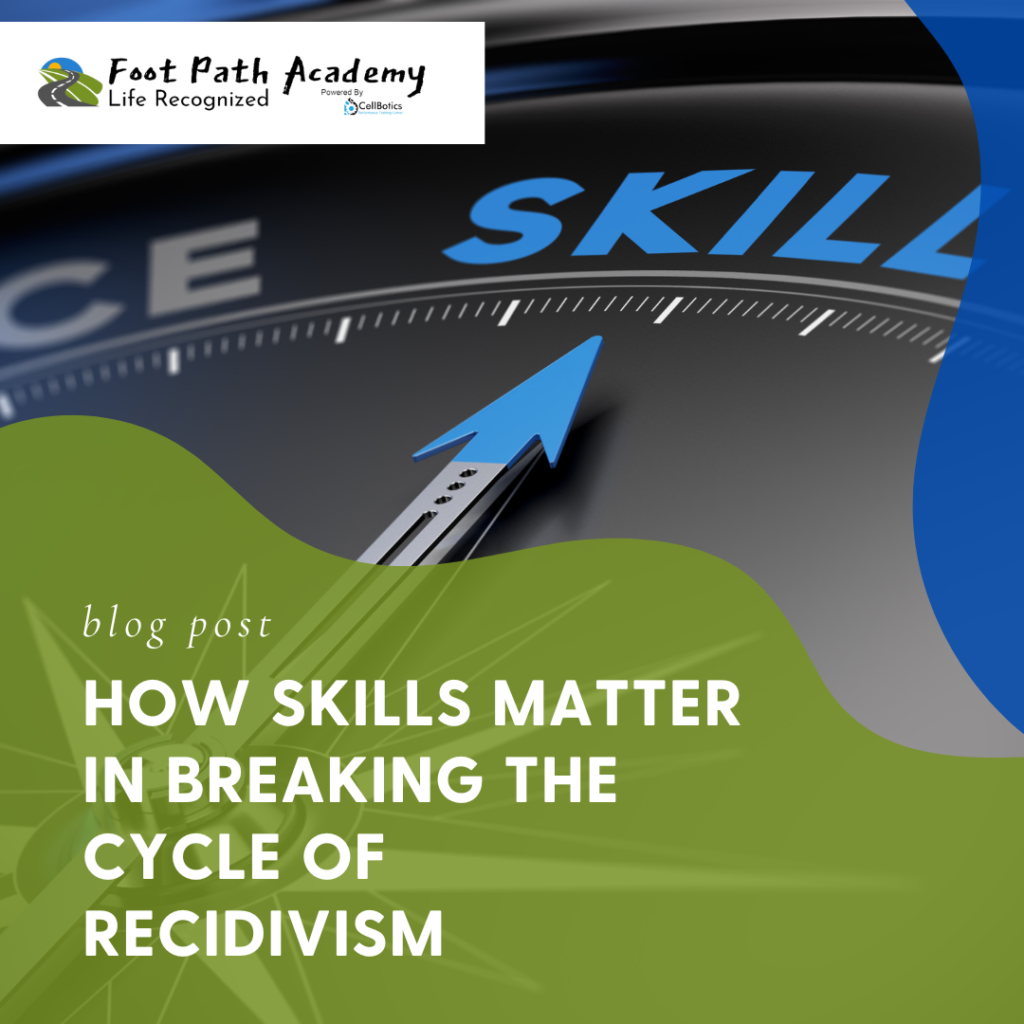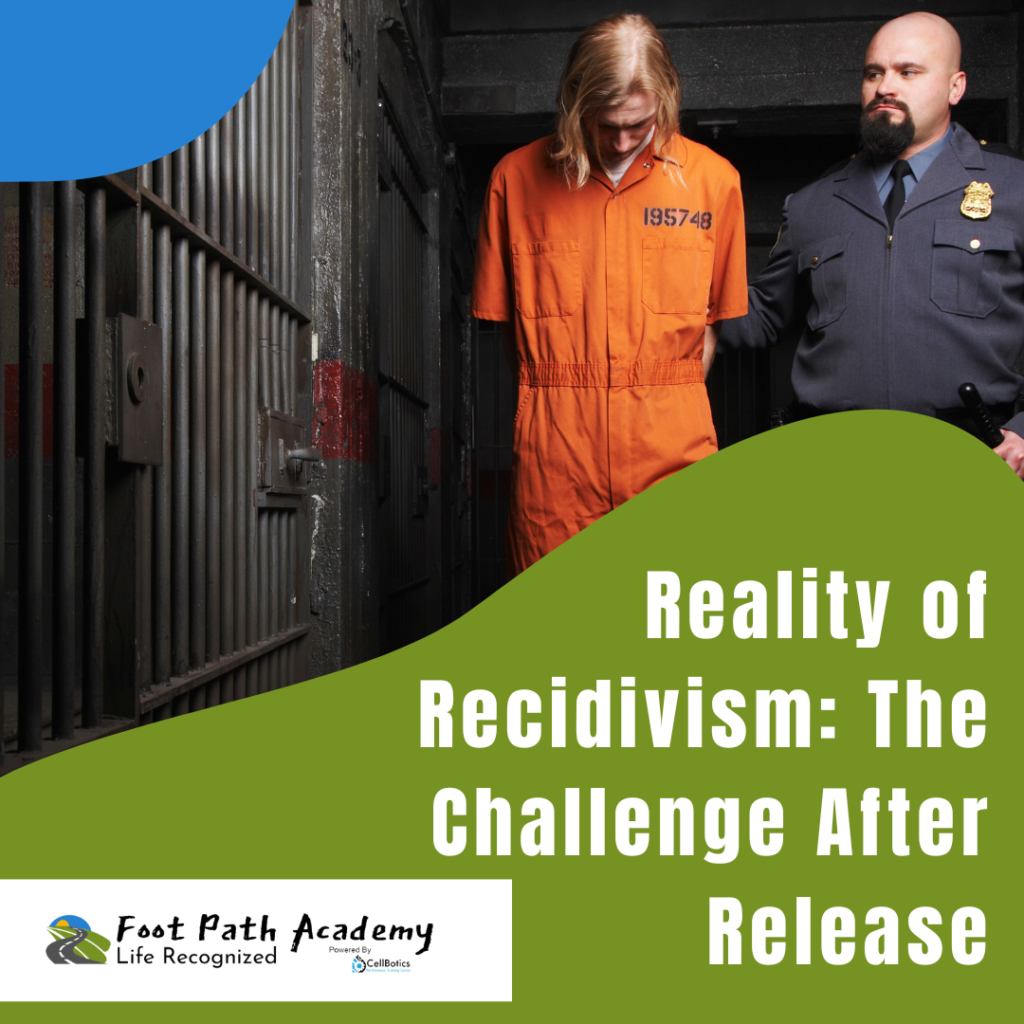How Skills Matter in Breaking the Cycle of Recidivism

In the battle against recidivism, a key weapon has emerged: skills. The National Institute of Justice’s report underscores the significant link between employment after release and reduced re-offending rates.

Having a job isn’t just a paycheck; it’s a lifeline to a better future, a chance to break free from the vicious cycle of incarceration and find a meaningful place in society once more. Let’s delve into the power of skills and how organizations like Foot Path Academy are making a tangible difference in this critical arena.
Skills: The Bridge to a New Life

As the saying goes, “Give a man a fish, and you feed him for a day; teach a man to fish, and you feed him for a lifetime.”
Equipping individuals within the incarcerated community with essential knowledge and skills is the cornerstone of successful reintegration.
This is where Foot Path Academy steps in, offering a lifeline to those seeking to turn their lives around. Online Education, combined with practical skills, provides the foundation needed to navigate the challenges that await upon release.
The Reality: Who Ends Up Behind Bars and Why

Statistics paint a stark picture of the incarcerated population. It’s not a homogenous group; it’s diverse, encompassing individuals from various racial, ethnic, and socio-economic backgrounds. A significant proportion come from marginalized communities, where the odds are often stacked against them from an early age.
The Harsh Reality: Recidivism Rates

Recidivism rates are alarming. The cycle of re-offending is a burden on individuals, families, and society as a whole. But there’s hope. Research shows that employment post-release significantly reduces the likelihood of returning to a life of crime.
It’s a testament to the transformative power of skills, and organizations like Foot Path Academy are at the forefront of making this change possible.
The Foot Path Academy Difference

At Foot Path Academy, the commitment is unwavering. It’s about empowerment, giving individuals the tools to reshape their destinies. Education plays a pivotal role in disrupting the re-offending cycle.
The Academy’s mission is clear: to bridge the daunting gap between incarceration and reintegration. This isn’t just about jobs; it’s about forging a purposeful, self-sufficient life – a life with meaning and fulfillment, not one haunted by the mistakes of the past.
A Training Platform Like No Other
Foot Path Academy’s approach is revolutionary. It’s not just education; it’s transformative learning. This platform is designed to cater specifically to the incarcerated community, addressing their unique needs and challenges.

It provides a comprehensive curriculum that extends beyond the classroom, preparing individuals for the real world. The curriculum encompasses instruction on topics such as using self-checkout at stores, setting up a bank account, understanding food, applying for jobs, using Microsoft Office, interacting with others, avoiding conflicts, evaluating situations, public transportation, recycling, and caring for the community to name a few.
The Challenge: Finding Employment After Release

Re-entering society after incarceration is no easy feat, and the biggest challenge is often finding employment. Many employers are hesitant to hire individuals with criminal records, creating a vicious cycle where lack of opportunity pushes them back towards a life of crime. This is where Foot Path Academy makes an invaluable contribution.
Foot Path Academy offers a wide range of courses, including how to adapt to the trend of finding employment in today’s world either online or on-site.
Conclusion
Skills matter. They matter because they represent hope, opportunity, and the chance for redemption. Foot Path Academy isn’t just teaching; it’s rebuilding lives, transforming futures, and giving individuals a second chance. By addressing the root causes of recidivism and empowering the incarcerated community with education and skills, Foot Path Academy is lighting the way to a brighter, more inclusive society.
It’s a journey fraught with challenges, but with determination and the right support, we can break the cycle of recidivism, one skill at a time. To learn more about Foot Path Academy, book a 1-on-1 call now! Click here
Thank you for reading my blog,
Nicole Russell
CEO & Founder, Foot Path Academy


























